 It’s treading a mighty fine line, no question about it. But Mushoku Tensei has some stuff definitely going for it. It’s interesting, more or less. It’s clearly quite well-produced and directed. And somehow, despite being superficially a virtual template for the most vastly overused genre in Japanese entertainment, it doesn’t feel as generic as it should. Is that enough to keep me invested for the long haul? I honestly have no idea. But I’ll stay on the train till it gives me a reason to get off.
It’s treading a mighty fine line, no question about it. But Mushoku Tensei has some stuff definitely going for it. It’s interesting, more or less. It’s clearly quite well-produced and directed. And somehow, despite being superficially a virtual template for the most vastly overused genre in Japanese entertainment, it doesn’t feel as generic as it should. Is that enough to keep me invested for the long haul? I honestly have no idea. But I’ll stay on the train till it gives me a reason to get off.
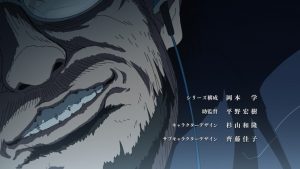 It’s worth exploring just why the generic factor is what it is, because it defies easy explanation. Mushoku Tensei is not by any stretch the inventor of the tropes it portrays, having been launched only in 2012. And for someone like me who’s never touched the LN it really wouldn’t matter whether it was 2012 or 2019 anyway. So what gives? Whether it’s the adaptation or the source material I don’t know, but there’s an authoritativeness to Mushoku Tensei that gives it credibility. Whether it invented anything or not it acts like it did. it doesn’t seem to feel the need to check boxes the way most isekai do – it just goes about its business. And as I noted after the premiere, there’s a sense that there’s nothing here that doesn’t need to be here.
It’s worth exploring just why the generic factor is what it is, because it defies easy explanation. Mushoku Tensei is not by any stretch the inventor of the tropes it portrays, having been launched only in 2012. And for someone like me who’s never touched the LN it really wouldn’t matter whether it was 2012 or 2019 anyway. So what gives? Whether it’s the adaptation or the source material I don’t know, but there’s an authoritativeness to Mushoku Tensei that gives it credibility. Whether it invented anything or not it acts like it did. it doesn’t seem to feel the need to check boxes the way most isekai do – it just goes about its business. And as I noted after the premiere, there’s a sense that there’s nothing here that doesn’t need to be here.
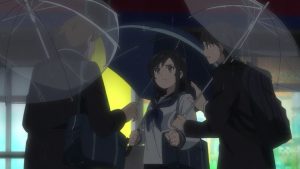 That said, Rudy is a piece of work. The series takes kind of a stock approach to his backstory if we’re honest, both casting derision on the person he was and giving him a built-in excuse for it. Bullying is bad, very bad. Not attending your parents’ funeral and jerking off (to kiddie porn, presumably) as it’s happening is also bad. These two things are not mutually exclusive. This is a pattern that’s endemic to isekai, which are at-heart wish-fulfilment vehicles – self-loathing, excuses, power fantasy. It’s the holy trinity of these sorts of series, yet somehow with Mushoku Tensei it sort of holds water (so far). Don’t ask me how.
That said, Rudy is a piece of work. The series takes kind of a stock approach to his backstory if we’re honest, both casting derision on the person he was and giving him a built-in excuse for it. Bullying is bad, very bad. Not attending your parents’ funeral and jerking off (to kiddie porn, presumably) as it’s happening is also bad. These two things are not mutually exclusive. This is a pattern that’s endemic to isekai, which are at-heart wish-fulfilment vehicles – self-loathing, excuses, power fantasy. It’s the holy trinity of these sorts of series, yet somehow with Mushoku Tensei it sort of holds water (so far). Don’t ask me how.
 Right now the series is staying on that tightrope with Rudy, but there’s a crocodile pit waiting below it. He’s basically unrepentant, subject to the same fetishistic fantasies he had in his prior life and not remotely interested in fighting them. He’s also capable of forming a relationship with someone (Roxy) he fetishizes, and feeling gratitude towards her for being good to him. He’s a sicko, but he’s cute as a button and has the likeable goofus Sugita voicing him. It’s almost cheating, but it is effective at clouding the issue to the point where Rudy is an interesting conundrum of a character.
Right now the series is staying on that tightrope with Rudy, but there’s a crocodile pit waiting below it. He’s basically unrepentant, subject to the same fetishistic fantasies he had in his prior life and not remotely interested in fighting them. He’s also capable of forming a relationship with someone (Roxy) he fetishizes, and feeling gratitude towards her for being good to him. He’s a sicko, but he’s cute as a button and has the likeable goofus Sugita voicing him. It’s almost cheating, but it is effective at clouding the issue to the point where Rudy is an interesting conundrum of a character.
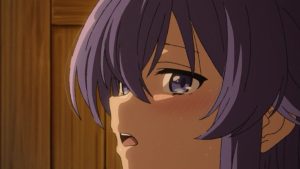 One shouldn’t make light of the trauma Rudy suffered as a hikikomori, so powerful that it followed him through reincarnation. The problem is the omnipresence of the isekai genre, the vast majority of which are mediocre or worse, makes it almost impossible not to view it as trivial on-screen. If there is something meaningful to be said in this genre, maybe Mushoku Tensei is getting at it in a way most of its lesser competition cannot. And it seems to be doing so in pretty unapologetic fashion to boot. I frankly almost don’t see how it’s going to be able to pull it off, but I’m sort of rooting for it to succeed.
One shouldn’t make light of the trauma Rudy suffered as a hikikomori, so powerful that it followed him through reincarnation. The problem is the omnipresence of the isekai genre, the vast majority of which are mediocre or worse, makes it almost impossible not to view it as trivial on-screen. If there is something meaningful to be said in this genre, maybe Mushoku Tensei is getting at it in a way most of its lesser competition cannot. And it seems to be doing so in pretty unapologetic fashion to boot. I frankly almost don’t see how it’s going to be able to pull it off, but I’m sort of rooting for it to succeed.


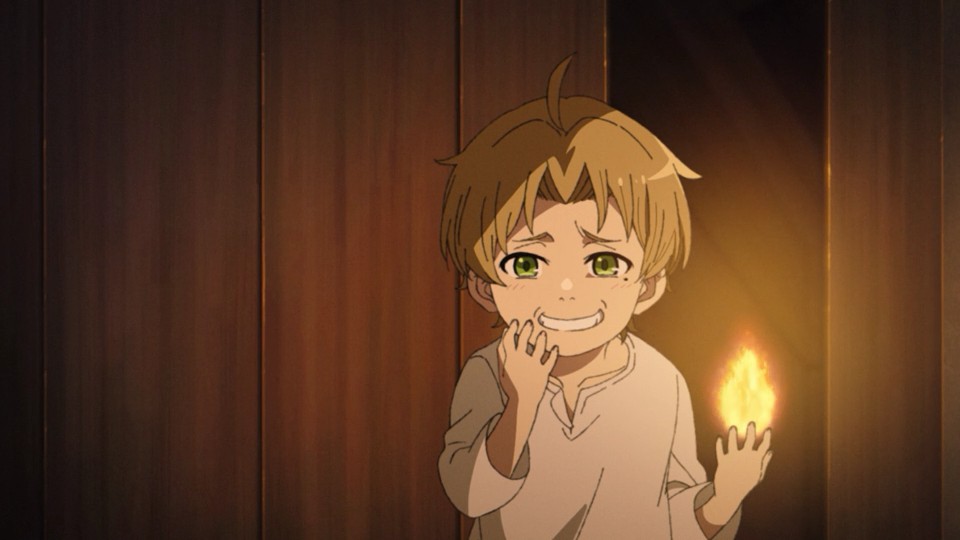



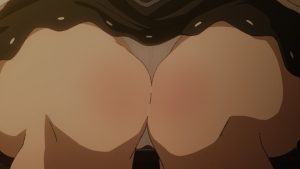





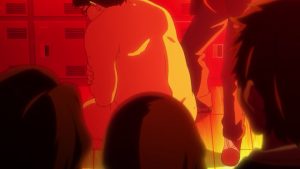



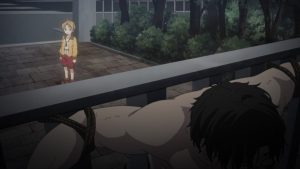




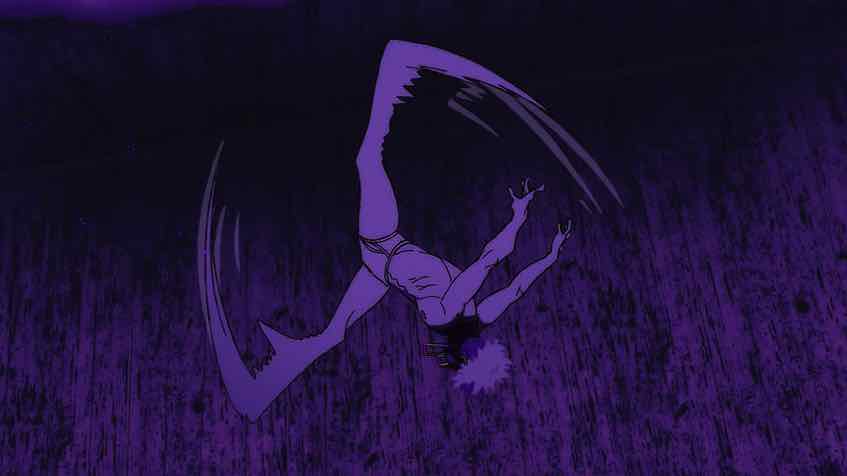
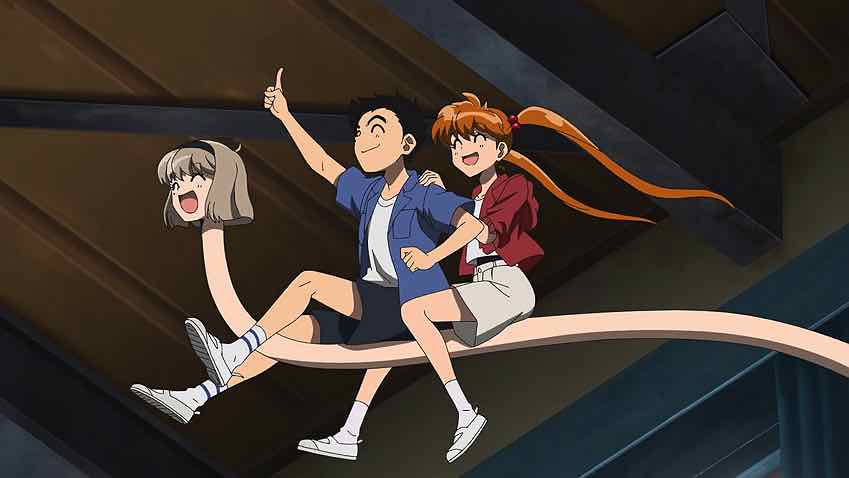
Jonathan Tappan
January 19, 2021 at 11:54 pmI was hoping for something along the lines of RE:Zero but so far I’m not seeing it.
Subaru, the hero of RE:Zero, starts out as a rather sympathetic loser whose main fault seems to have been a tendency to give up easily and not try very hard. He’s cast into a harsh, unforgiving isekai world which breaks him repeatedly. He has no special powers other than a “game save point” feature that’s very unpleasant to use.
The result is an inspiring story of personal growth as Subaru overcomes seemingly insuperable obstacles after multiple failed attempts.
For Mushoku Tensei to work, things need to start getting much harder for Rudy pretty fast. If he continues to get everything handed to him on a silver platter it’s going to be very boring.
Guardian Enzo
January 20, 2021 at 7:34 amI don’t disagree with your last point. I assume that change will happen, we’ll see.
In a sense RZ takes the easier path by having a character whose “redemption” is taking place be, as you said, basically likable from the outset. I sort of respect that this series is rather unsparing in that sense though as I said, not sure how it pulls it off.
Monymous
January 21, 2021 at 2:18 amI usually end up checking out of isekai adaptations after a few episodes because they end up becoming fan service engines with no dramatic stakes due to overpowered main characters. For most of them, the premise seems to be “All that video-game playing/anime watching paid off and now I can break the rules of this alternative world to become a God hero.”
I don’t have any familiarity with the source material, but this one does seem different/more promising in that the main character is having to overcome some of his past psychological issues. It is still wish fulfillment, but the premise seems to be more “Is there a reincarnation/fantasy world that could heal someone like this and allow them to learn how to live a happy/healthy life?”
We’ll see how long it keeps it up.
Yann
January 25, 2021 at 10:40 amJust finished the episode… It’s pretty rare (as in… it almost never happens) for me to watch more than the 1st episode when it comes to isekai, but I’m liking this so far. It’s one of those “guilty pleasure” series I guess. And it’s true the voiceover by Sugita definitely helps! The production is also a notch above average.
I was almost certain you were not covering this after everything you’ve said about isekai in your podcast… But I guess there really is something different about this one. For now at least! Crossing fingers…
Guardian Enzo
January 25, 2021 at 11:56 am“For Now At Least”. I mean, I have covered some isekai for a few eps (Slime off the top of my head) but they always seem to lose me. Will this one? Who knows.